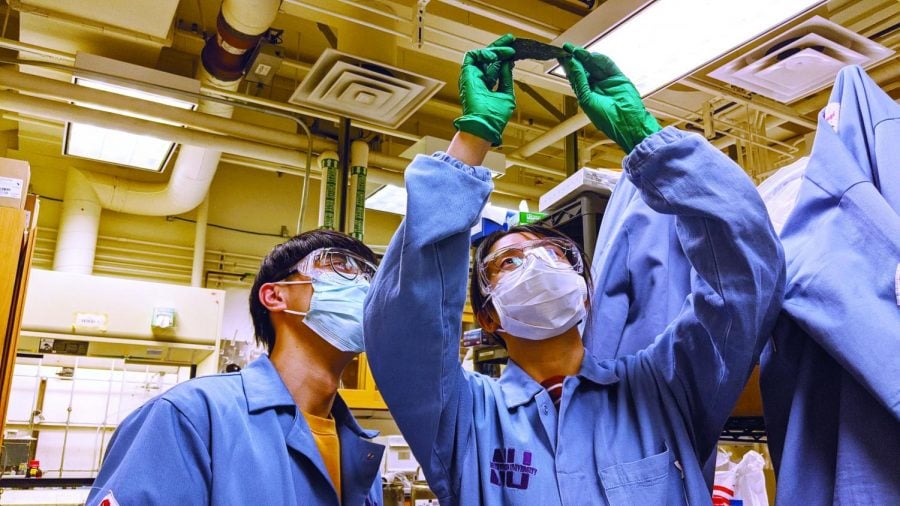Northwestern Prof. Jiaxing Huang receives NSF RAPID grant to develop antivirus barrier
McCormick Prof. Jiaxing Huang’s research team simulated sneezes and coughs to investigate the effect of a chemical coating on mask-like fabrics.
March 27, 2020
Northwestern researcher and McCormick Prof. Jiaxing Huang received a grant to develop a medical face mask that deactivates the COVID-19 agent upon contact, according to a University release.
The National Science Foundation’s RAPID grant provides funding to proposals that provide an urgent response to natural and unanticipated disasters. The project is the first to receive RAPID funding through a physical science and engineering proposal.
Huang’s project, “On-mask chemical modulation of respiratory droplets,” aims to slow dissemination of the novel coronavirus through self-sanitizing masks. His team, which has been deemed “essential” according to the University’s March 20 stay-at-home policy, continues to test chemicals optimal to incorporate into the mask’s barrier.
“Spread of infectious respiratory diseases, such as COVID-19, typically starts when an infected person releases virus-laden respiratory droplets through coughing or sneezing,” Huang said in the release. “To further slow and even prevent the virus from spreading, we need to greatly reduce the number and activity of the viruses in those just released respiratory droplets.”
The current mask technology only provides physical barriers. Huang’s team plans to develop a chemical solution that can be dropped into a common mask to create an additional safety measure.
The solution dissolved in the masks worn by infected people will prevent them from disseminating the virus to nearby healthcare professionals or individuals, the release noted.
“More researchers — and especially students in the physical sciences and engineering — can proactively study the problems and think of new ways to mitigate the transmission and spread of viruses,” Huang said. “Even those who need to stay home for now can still continue to brainstorm.”
Email: [email protected]
Twitter: @yunkyomoonk


